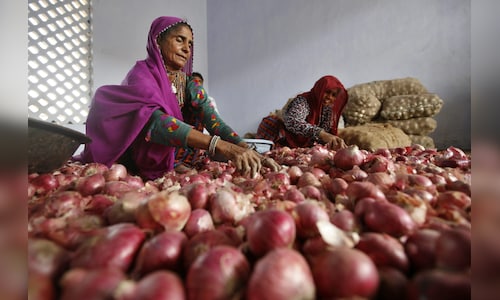
Several factors contributed to this hardship, including unseasonal rainfall, a delayed monsoon, and erratic weather patterns that damaged a large portion of their crops. This left them not only without the export income they had hoped for but also struggling to recover from a devastating harvest.
In May 2024, just weeks before the crucial Lok Sabha elections, the government lifted the export ban. However, the move came too late to restore the farmers’ financial situation. The BJP secured only 9 out of 23 parliamentary seats in Maharashtra, with none of these victories coming from the onion-growing districts, a clear sign that the government’s handling of the issue had not won over the farmers.
With the state assembly elections approaching, the BJP-led Mahayuti government has recently taken further steps to ease the burden on onion farmers. Export duties have been slashed from 40% to 20%, and the minimum export price (MEP) of $550 per quintal has been removed—two significant changes aimed at improving the export potential for onion traders.
Maharashtra Chief Minister Eknath Shinde was quick to assure that, “Farmers shouldn’t worry. This decision is not an election slogan. It won’t change after the elections. We are not like Congress or Maha Vikas Aghadi.”
For many farmers, Shinde’s assurances have brought a sense of temporary relief. However, doubts remain, and some continue to question the long-term sustainability of these policies. Sanjay Jog, a senior journalist, highlights that the primary concern for farmers is the uncertainty surrounding the future of export policies. He noted, “The major issue remains about the continuity in the export policy. The farmers are really worried about it.”
Opposition leaders were quick to criticise the government’s response. They argue that lifting the export restrictions and reducing the export duty are insufficient measures. Supriya Sule, a Member of Parliament from the Nationalist Congress Party (NCP), has been vocal in her criticism, stating, “The policy made by the BJP government for onions was completely wrong and I have condemned it multiple times. Giving good prices was an option Maharashtra government had.”
Moreover, the BJP government’s attempts to stabilise the domestic onion market through the creation of “Kanda Trains”—a mechanism to transport onions at controlled prices—have been largely criticised by farmers who say the initiative did not result in higher prices for their produce.
Onion farmers represent a significant vote bank, especially in northern Maharashtra, where the majority of the crop is grown. While some of the recent policy changes and compensation for crop damage have improved farmers’ perceptions of the ruling alliance, many still feel betrayed by the initial export ban that led to major financial losses.
The opposition, however, has seized upon this discontent, underscoring that it was the BJP government at the Centre that initially imposed the export restrictions, leading to the financial losses suffered by farmers.



